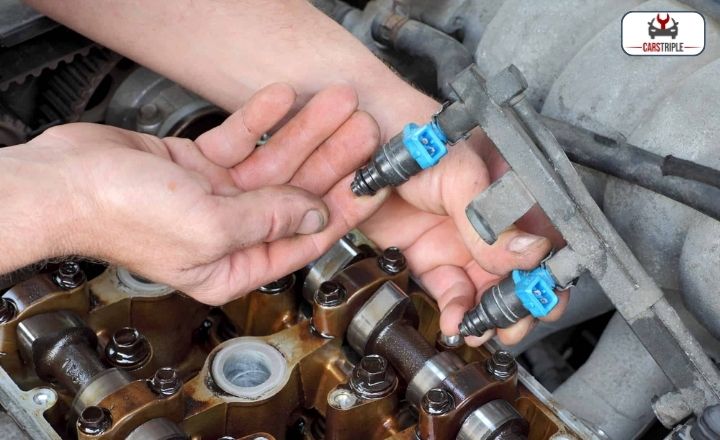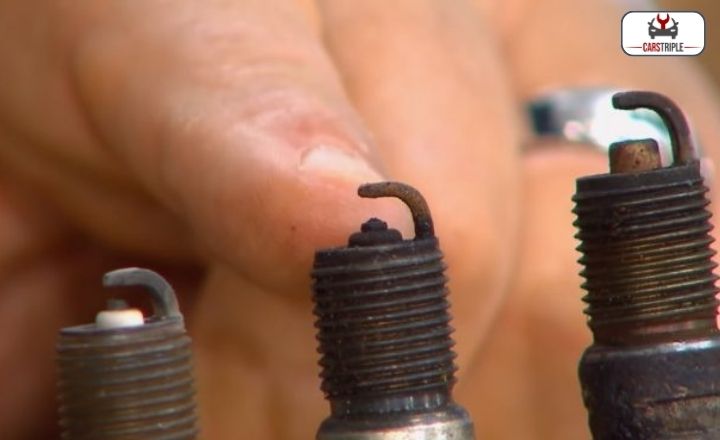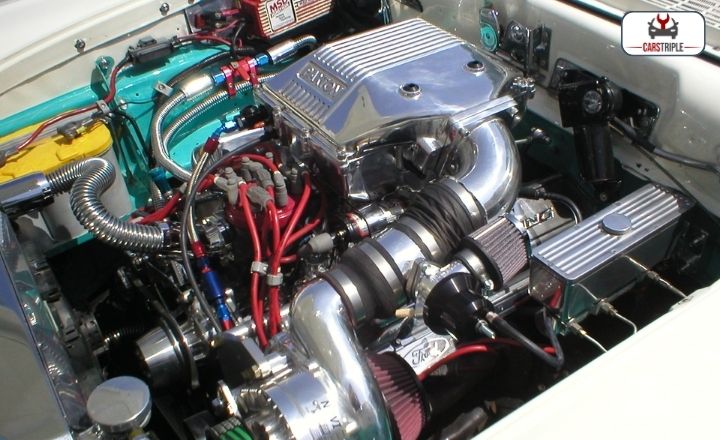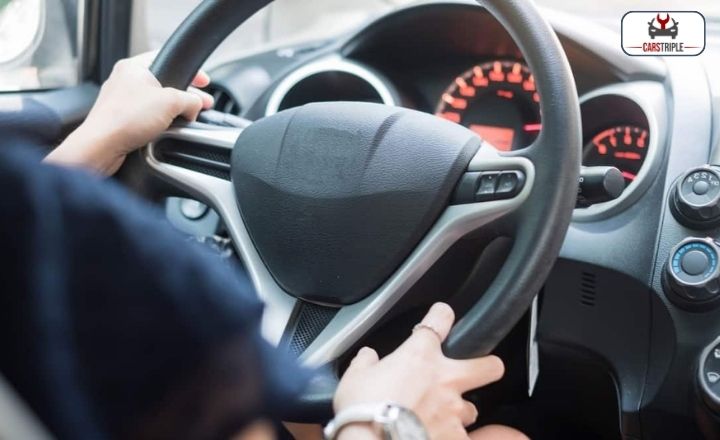It is an issue that compromises your driving experience and poses potential risks to your safety and the health of your vehicle. Understanding why your car jerks when accelerating is crucial to address the problem effectively and prevent further damage.
We will explore 10 common reasons why your car Jerks When Accelerating, shedding light on possible causes ranging from minor issues to more serious mechanical malfunctions.
By identifying these factors, we hope to provide valuable insights that will empower you to take appropriate action and get back on the road smoothly and safely.
10 Reasons Why Your Car Jerks When Accelerating
Experiencing jerking movements in your car when you accelerate can be frustrating and concerning. Understanding the underlying causes behind this issue can help you diagnose and address the problem effectively. There are numerous reasons your car jerks when accelerating, ranging from simple maintenance issues to more severe mechanical complications.
Dirty Fuel Injectors:
Dirty fuel injectors can be a significant headache for car owners, often leading to jerky acceleration and poor performance. Fuel injectors are responsible for delivering the right amount of fuel into the engine, but their efficiency could be better when they become clogged or dirty. This results in a decrease in power and misfires during acceleration or while driving at a steady speed.

When fuel injectors are dirty, they may not spray the fuel properly, leading to an inadequate mixture of air and fuel in the combustion chamber. The imbalance affects the engine’s ability to generate power efficiently. As a result, drivers may experience hesitation or jerking movements when trying to accelerate quickly or maintain a consistent speed.
Dirty fuel injectors can also cause misfires. A misfire occurs when there is incomplete combustion of the air-fuel mixture within one or more engine cylinders.
Blockages:
Blockages in the fuel system can be a primary culprit behind the frustrating jerking sensation in a car experienced while driving. This problem occurs when an obstruction within the fuel system disrupts the crucial balance between the fuel and air mixture required for smooth acceleration. When blockages occur, they restrict fuel flow to the engine, resulting in hesitation and erratic movements.
The main cause of blockages in the fuel system is a clogged or dirty fuel filter. Debris and impurities accumulate within the filter, preventing proper fuel flow and disrupting performance. Another possible cause could be a blocked or malfunctioning fuel injector, which fails to deliver enough fuel into the combustion chamber. In both cases, these blockages hinder acceleration and overall engine efficiency.
Worn Out Spark Plugs:
If your car is not accelerating as quickly as it used to, one possible culprit could be worn-out spark plugs. Spark plugs are crucial in igniting your vehicle’s internal combustion engine. The electrodes on the spark plugs wear down due to constant exposure to high temperatures and electrical currents.

As a result, they become less efficient at igniting the air-fuel mixture in each cylinder, leading to sluggish acceleration. Replacing worn-out spark plugs is an affordable and relatively simple maintenance task that can significantly improve your car’s performance.
Dirty Air Filters:
Air filters are vital in keeping harmful pollutants, dirt, and debris away from the engine. These filters can become clogged with dirt and grime.
When the air filter is clogged, it restricts airflow into the engine, leading to an imbalance in the air-fuel mixture. This imbalance affects the combustion process and reduces engine performance. As a result, when you press down on the accelerator pedal, your car may jerk or hesitate before gaining speed.
Damaged Cylinders:
Engine cylinder damage is a severe issue that can result in engine misfires and, ultimately, engine failure. The cylinders play a crucial role in the combustion process, housing the pistons that generate power to move the vehicle. When a cylinder is damaged, it can disrupt this process and cause an imbalance in the engine’s operation. This can lead to misfires, where fuel fails to ignite correctly or ignites incorrectly. Ignoring this problem can severely affect your vehicle’s performance and reliability.
If you suspect cylinder damage in your engine, you must seek immediate professional help for repair or replacement. Continuing to drive with damaged cylinders can exacerbate the issue and potentially cause further damage to other components of your engine. A misfiring engine affects your vehicle’s performance and compromises fuel efficiency and emissions levels.
Blocked Catalytic Converters:
The potential culprit behind this frustrating issue could be a blocked catalytic converter. A catalytic converter is crucial in reducing harmful emissions by converting toxic gases into less harmful substances. It can become clogged with debris and carbon buildup, hindering its ability to function properly.
When a catalytic converter gets blocked, it restricts the flow of exhaust gases and leads to poor engine performance. As you press the accelerator pedal, your engine struggles to expel exhaust gases efficiently, resulting in jerking movements from your car. This blockage can cause overheating issues since the trapped heat cannot properly escape through the exhaust system.
Damaged Gas Lines:
The gas lines in your vehicle may become worn or corroded, leading to leaks or restricted fuel flow. It can disrupt the smooth operation of your engine and cause jerking motions when you press down on the accelerator.
Damaged gas lines can occur due to various factors, such as exposure to harsh environmental conditions, age-related degradation, or even accidental damage from road debris. If you suspect that damaged gas lines cause your car’s jerking, there are some telltale signs to watch out for.
Damaged Acceleration Cables:
Acceleration cables transmit the driver’s input to the engine, controlling how much fuel and air should be delivered for optimum performance. These cables can become worn or frayed, leading to a lack of proper communication between the accelerator pedal and the engine. As a result, when you press down on the gas pedal, your car may jerk or hesitate instead of smoothly accelerating.
Damaged acceleration cables are often caused by wear and tear due to regular use or exposure to harsh weather conditions. The constant movement of the accelerator pedal can cause these cables to fray or become stretched, affecting their ability to transmit signals accurately. If moisture seeps into the cable housing through cracks or gaps, it can lead to corrosion and further damage over time.
Defective Carburetors:
Carburetors are responsible for regulating the fuel and air mixture that enters the engine. A defective carburetor can wreak havoc on performance. One common issue that arises from a damaged carburetor is jerking during acceleration. This occurs when an incorrect ratio of fuel to air is delivered to the engine, causing it to sputter and jerk as it struggles to maintain a consistent rhythm.

To jerking, another telltale sign of a defective carburettor is poor overall performance. When the fuel and air mixture is imbalanced, the engine may experience difficulty starting or idling inconsistently. It may hesitate or stall during acceleration, leading to decreased power output and reduced efficiency. These symptoms frustrate drivers and can lead to increased fuel consumption and costly repairs if addressed.
Moisture on the Distributor Cap:
The distributor cap is a part of the ignition system, responsible for distributing electrical currents from the ignition coil to each spark plug. If moisture is present on the distributor cap, it can disrupt this process and lead to a jerking motion. Water can accumulate for various reasons, such as driving in heavy rain or deep puddles. When moisture gets inside the distributor cap, it interferes with the proper distribution of electrical currents and causes misfires in one or more cylinders, resulting in a jerking sensation.
Final Words:
Experiencing car jerks when accelerating can be both frustrating and potentially dangerous. There are various reasons why your car may exhibit this behavior, and it is crucial to address the issue promptly to ensure your safety and avoid further damage to your vehicle. By identifying the root cause, whether it be a malfunctioning sensor, clogged fuel injectors, or a transmission problem, you can take the necessary steps to rectify the situation. Remember to maintain your car regularly, including regular oil changes and tune-ups, as preventative measures prevent jerking during acceleration. Please don’t ignore these warning signs; consult a trusted mechanic who can diagnose and fix the problem before it escalates.
FAQ’s:
Why Does My Car Jerk When I Accelerate?
There could be several reasons why your car jerks when you accelerate. Dirty Fuel Injectors, Blockages, Worn Out Spark Plugs, Dirty Air Filters, Damaged Cylinders, Blocked Catalytic Converters, Damaged Gas Lines, Damaged Acceleration Cables, Defective Carburetors, and Moisture on the Distributor Cap these all possible reasons.
Can I Drive If My Car Is Jerking?
It is generally not recommended to continue driving it. Jerking can indicate underlying mechanical issues that may worsen if you keep driving.

